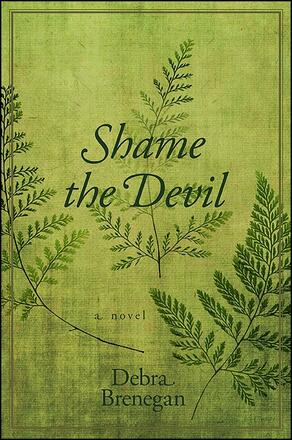
Shame the Devil
A Novel
Alternative formats available from:
The remarkable and true story of the nineteenth-century novelist, journalist, and feminist Fanny Fern.
Description
Finalist for the 2011 ForeWord Book of the Year in the Historical Fiction Category
"There may be married people who do not read the morning paper. Smith and I know them not … It is not too much to say the newspapers are one of our strongest points of sympathy; that it is our meat and drink to praise and abuse them together; that we often in our imagination edit a model newspaper, which shall have for its motto, 'Speak the truth, and shame the devil.'" — Fanny Fern
Shame the Devil tells the remarkable and true story of Fanny Fern (the pen name of Sara Payson Willis), one of the most successful, influential, and popular writers of the nineteenth century. A novelist, journalist, and feminist, Fern (1811–1872) outsold Harriet Beecher Stowe, won the respect of Nathaniel Hawthorne, and served as literary mentor to Walt Whitman. Scrabbling in the depths of poverty before her meteoric rise to fame and fortune, she was widowed, escaped an abusive second marriage, penned one of the country's first prenuptial agreements, married a man eleven years her junior, and served as a nineteenth-century Oprah to her hundreds of thousands of fans. Her weekly editorials in the pages of the New York Ledger over a period of about twenty years chronicled the myriad controversies of her era and demonstrated her firm belief in the motto, "Speak the truth, and shame the devil." Through the story of Fern and her contemporaries, including Walt Whitman, Catharine Beecher, Harriet Beecher Stowe, Harriet Jacobs, and Nathaniel Hawthorne, Shame the Devil brings the intellectual and social ferment of mid-nineteenth-century America to life.
Debra Brenegan is Assistant Professor of English and Coordinator of Women's Studies at Westminster College in Fulton, Missouri. Her work has been published in CALYX, The Cimarron Review, Southern Women's Review, Phoebe, and other publications.
Reviews
"Debra Brenegan will undoubtedly receive high praise for her superb portrait of Fanny Fern. Readers will gain an insightful look at this overlooked author and her firsthand account of American society during her time." — Historical Novel Reviews
"…[an] excellent novel … This enlightening book collects well-selected snapshots, pieces of interpretive history that will be remembered." — ForeWord Reviews
"Shame the Devil is a passionate and stirring tribute to a refined wordsmith who paved the way for generations of women." — Milwaukee Shepherd Express
"Like Margaret Fuller and Emily Dickinson, her contemporaries of the mid-nineteenth century, Fanny Fern was an American woman far ahead of her time. Debra Brenegan has brought the drama of Fanny Fern's story to life in her carefully researched and stirring biographical novel Shame the Devil. There is an authenticity to every page brimming with the flavor of Fern's era and the drama of her insurgence against puritanical social mores and unjust patriarchal laws. The characterization of the young rebellious Sara Willis, later to be known as the famous columnist Fanny Fern, in the beginning pages of the book is lively and endearing and sets the stage for the pioneering adventures that follow. The reader will find it hard to put down this book as it takes one on a thrilling and adventurous journey into the life of a great American humanitarian—an advocate of women's and children's rights who forged her way into the American mind, leaving behind a rich legacy of accomplishment upon which we continue to thrive in our struggle to progress toward being fully decent and enlightened humans." — Daniela Gioseffi, author of Wild Nights, Wild Nights: The Story of Emily Dickinson's "Master," Neighbor and Friend and Bridegroom
"Brenegan's Fanny Fern is a marvel—fiercely determined, passionate, and alive with a strikingly modern wit. Shame the Devil is a fine tribute to the writer who paved the way for generations of women." — Kelly O'Connor McNees, author of The Lost Summer of Louisa May Alcott
"Debra Brenegan has created a lively portrait of an amazing woman. The heart-wrenching ups and downs of Fanny Fern's life make for riveting reading, and the lush depictions of mid-1800s Boston and New York, peppered with glimpses of Walt Whitman, Harriet Beecher Stowe, and Harriet Jacobs, make for a vivid, rollicking tale of one of the most pivotal moments in American literary history." — Tina May Hall, author of The Physics of Imaginary Objects
"In her wide-ranging way, Debra Brenegan turns an age of great social and artistic change—for the races, for women, for the country—into a narrative of compelling characters. This novel emerges from history and becomes something more valuable—great literary art. Brenegan's Fanny, her family, and the cluster of historical characters come to us complicated and whole, demanding our attention." — Robert Stewart, editor of New Letters